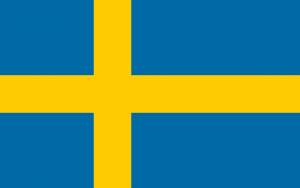Difference between revisions of "Language/Swedish/Vocabulary/Job-applications-and-interviews"
m (Quick edit) |
m (Quick edit) |
||
| Line 109: | Line 109: | ||
[[Category:0-to-A1-Course]] | [[Category:0-to-A1-Course]] | ||
[[Category:Swedish-0-to-A1-Course]] | [[Category:Swedish-0-to-A1-Course]] | ||
==Related Lessons== | |||
* [[Language/Swedish/Vocabulary/At-Home|At Home]] | |||
* [[Language/Swedish/Vocabulary/Giving-directions|Giving directions]] | |||
* [[Language/Swedish/Vocabulary/People-in-Swedish|People in Swedish]] | |||
* [[Language/Swedish/Vocabulary/How-to-talk-about-location-with-här,-där,-and-där-borta|How to talk about location with här, där, and där borta]] | |||
* [[Language/Swedish/Vocabulary/House|House]] | |||
* [[Language/Swedish/Vocabulary/Fruits|Fruits]] | |||
* [[Language/Swedish/Vocabulary/List-of-confused-words|List of confused words]] | |||
* [[Language/Swedish/Vocabulary/Health|Health]] | |||
* [[Language/Swedish/Vocabulary/At-the-Post-Office|At the Post Office]] | |||
* [[Language/Swedish/Vocabulary/Body-parts|Body parts]] | |||
{{Swedish-Page-Bottom}} | {{Swedish-Page-Bottom}} | ||
Revision as of 12:59, 12 March 2023
Introduction
Hej, and welcome to the "Complete 0 to A1 Swedish Course"! This lesson will cover everything you need to know about writing a job application and going through a job interview in Swedish. It can be nerve-wracking to apply for a job in a new language, but with the right preparation, you can feel confident and ready to succeed.
In this lesson, we'll cover the basics of writing a job application, including what to include in your cover letter and resume. We'll also go over common interview questions and how to answer them with strong, professional, and fluent Swedish. By the end of this lesson, you'll have the knowledge and skills you need to succeed in your job search in Sweden.
Job Applications
When applying for a job in Sweden, it's important to have a well-written cover letter and resume. Your cover letter should be brief and to the point, highlighting your skills and experience that are relevant to the job you're applying for. Your resume should be organized and easy to read, including your education, work experience, and any relevant skills or certifications.
Cover Letter
Your cover letter should be no more than one page long, and it should be tailored to the specific job you're applying for. Here are some tips for writing a strong cover letter:
- Start by introducing yourself, why you're interested in the job, and how you heard about the position.
- Highlight your most relevant skills and experiences, with examples of how you have used them in the past.
- Show that you have researched the company by referencing specific projects or initiatives they're working on that interest you.
- End by thanking the employer for considering your application and expressing your enthusiasm for the opportunity.
Resume
Your resume should be no more than two pages long, and it should clearly and concisely present your work experience, education, and any relevant skills or certifications. Here are some tips for writing a strong resume:
- Start with your personal information, including your name, contact information, and nationality.
- Include a professional summary of your work experience and skills, highlighting your most impressive accomplishments.
- List your work experience, education, and any relevant certifications or training programs you have completed.
- Make sure to use clear and concise language, avoiding jargon and technical terms wherever possible.
Job Interviews
The job interview is your chance to further demonstrate your skills and qualifications for the job you're applying for. It's important to prepare by researching the company and the job, practicing your answers to common interview questions, and speaking clearly and confidently.
Preparing for the Interview
Before the interview, make sure to:
- Research the company's mission, values, and recent projects.
- Review the job description and think about how your skills and experience match the requirements.
- Prepare answers to common interview questions, such as "why do you want this job?" and "what are your strengths and weaknesses?"
- Dress appropriately and arrive on time, with a copy of your resume and any other required documents.
- Convey confidence and enthusiasm throughout the interview.
Common Interview Questions
Here are some common interview questions you might be asked during a job interview in Sweden, along with tips for how to answer them:
| Swedish | Pronunciation | English |
|---|---|---|
| Vad är dina styrkor? | Vahd air dee-nah stir-kor? | What are your strengths? |
| Vad är dina svagheter? | Vahd air dee-nah sva-ke-ter? | What are your weaknesses? |
| Varför söker du det här jobbet? | Vahrr-forh su-ker doo det harr job-bet? | Why are you applying for this job? |
| Vad vet du om vårt företag? | Vahd vet doo ohm vawrt feur-et-agh? | What do you know about our company? |
Thank You Note
After the interview, it's important to follow up with the employer and express your appreciation for the opportunity. You can do this by sending a short email or note, thanking them for their time and reiterating your interest in the job. This is also a good opportunity to clarify any outstanding questions or concerns that came up during the interview.
Sources
- <a href="https://en.wikipedia.org/wiki/Employment">Employment</a>
- <a href="https://en.wikipedia.org/wiki/Job_interview">Job Interview</a>
